Join us for a free guided tour of of Ibiye Camp’s solo exhibition layt de kam at Bonington Gallery, and her newly commissioned artwork in NTU’s new Design and Digital Arts building close by.
The tour will be led by Tom Godfrey, Curator and Director of Bonington Gallery.
This event will last up to an hour. Please meet at the entrance to Bonington Gallery for a prompt start at 1.00 pm. Free and open to all, booking required.
Ibiye holds an MA in Architecture from the Royal College of Art, and BA (Hons) in Fine Art, from the University of the Arts London, Central Saint Martins. Ibiye’s Thesis project titled Data: The New Black Gold was awarded the School of Architectures Dean’s Prize and was nominated for the RIBA Silver Medal Award.
Ibiye has presented her work at The Sharjah Architecture Triennial titled Rights of Future Generations in 2019 and Triennale Milano The State of the Art of Architecture conference in 2020. She showed in the Istanbul Biennial titled Empathy Revisited in 2020, and MAAT – Museum of Art, Architecture and Technology’s exhibition titled X is Not a Small Country in 2021 and the 13th Shanghai Biennale titled Bodies of Water in 2021, and London’s Art Festival, Deptford X in 2022. In 2023 Ibiye was included in the Venice Architectural Biennial within the group exhibition Guests from the Future, and in 2024, was included in Unseen Guests, a project organized by Iniva as part of the British Pavilion’s public programme at the 60th Venice Biennial.
Ibiye Camp, Rhiarna Dhaliwal and Emmy Bacharach run a BA Studio titled Digital Native at the Design Academy Eindhoven.

Join us for a free guided tour of of Ibiye Camp’s solo exhibition layt de kam at Bonington Gallery, and her newly commissioned artwork in NTU’s new Design and Digital Arts building close by.
The tour will be led by Tom Godfrey, Curator and Director of Bonington Gallery.
This event will last up to an hour. Please meet at the entrance to Bonington Gallery for a prompt start at 1.00 pm. Free and open to all, booking required.
Ibiye holds an MA in Architecture from the Royal College of Art, and BA (Hons) in Fine Art, from the University of the Arts London, Central Saint Martins. Ibiye’s Thesis project titled Data: The New Black Gold was awarded the School of Architectures Dean’s Prize and was nominated for the RIBA Silver Medal Award.
Ibiye has presented her work at The Sharjah Architecture Triennial titled Rights of Future Generations in 2019 and Triennale Milano The State of the Art of Architecture conference in 2020. She showed in the Istanbul Biennial titled Empathy Revisited in 2020, and MAAT – Museum of Art, Architecture and Technology’s exhibition titled X is Not a Small Country in 2021 and the 13th Shanghai Biennale titled Bodies of Water in 2021, and London’s Art Festival, Deptford X in 2022. In 2023 Ibiye was included in the Venice Architectural Biennial within the group exhibition Guests from the Future, and in 2024, was included in Unseen Guests, a project organized by Iniva as part of the British Pavilion’s public programme at the 60th Venice Biennial.
Ibiye Camp, Rhiarna Dhaliwal and Emmy Bacharach run a BA Studio titled Digital Native at the Design Academy Eindhoven.

On the occasion of Ibiye Camp’s solo exhibition at Bonington Gallery and the newly commissioned artwork displayed in NTU’s Design and Digital Arts Building, we are delighted to welcome Ibiye to give a talk about her recent work and wider practice, followed by a Q&A led by Bonington Gallery Curator & Director, Tom Godfrey.
The talk will take place in the Bonington Lecture Theatre, just next door to the gallery, and is free and open to all, booking required.
Ibiye holds an MA in Architecture from the Royal College of Art, and BA (Hons) in Fine Art, from the University of the Arts London, Central Saint Martins. Ibiye’s Thesis project titled Data: The New Black Gold was awarded the School of Architectures Dean’s Prize and was nominated for the RIBA Silver Medal Award.
Ibiye has presented her work at The Sharjah Architecture Triennial titled Rights of Future Generations in 2019 and Triennale Milano The State of the Art of Architecture conference in 2020. She showed in the Istanbul Biennial titled Empathy Revisited in 2020, and MAAT – Museum of Art, Architecture and Technology’s exhibition titled X is Not a Small Country in 2021 and the 13th Shanghai Biennale titled Bodies of Water in 2021, and London’s Art Festival, Deptford X in 2022. In 2023 Ibiye was included in the Venice Architectural Biennial within the group exhibition Guests from the Future, and in 2024, was included in Unseen Guests, a project organized by Iniva as part of the British Pavilion’s public programme at the 60th Venice Biennial.
Ibiye Camp, Rhiarna Dhaliwal and Emmy Bacharach run a BA Studio titled Digital Native at the Design Academy Eindhoven.

For the second consecutive year, Bonington Gallery proud to collaborate with Nottingham School of Art & Design to curate and commission a new digital artwork for the Design and Digital Arts (DaDA) building. This year’s commission is by artist Ibiye Camp, coinciding with her solo exhibition layt de kam at Bonington Gallery (17 January – 7 March 2025).
Camp’s commissioned work employs photogrammetry technologies and draws from a personal narrative surrounding a family funeral. The piece is inspired by Chinua Achebe’s short story The Sacrificial Egg, which explores the tension between Nigerian traditions and modern Western influences. This theme resonates strongly with Camp’s practice, which interrogates the intersections of tradition, spirituality, and modernity through both digital and physical media.
The completed work will be showcased on the large-scale screen in the DaDA building lobby and within the immersive 270-degree projection space on the first floor. As part of the commission, Camp will also lead two student workshops and deliver a public lecture, offering further insight into her creative process and thematic concerns.
This presentation is accessible to NTU students and staff Mon-Fri 10-5pm. The general public can access it via two public tours led by Bonington Gallery Curator & Director, Tom Godfrey.
Ibiye holds an MA in Architecture from the Royal College of Art, and BA (Hons) in Fine Art, from the University of the Arts London, Central Saint Martins. Ibiye’s Thesis project titled Data: The New Black Gold was awarded the School of Architectures Dean’s Prize and was nominated for the RIBA Silver Medal Award.
Ibiye has presented her work at The Sharjah Architecture Triennial titled Rights of Future Generations in 2019 and Triennale Milano The State of the Art of Architecture conference in 2020. She showed in the Istanbul Biennial titled Empathy Revisited in 2020, and MAAT – Museum of Art, Architecture and Technology’s exhibition titled X is Not a Small Country in 2021 and the 13th Shanghai Biennale titled Bodies of Water in 2021, and London’s Art Festival, Deptford X in 2022. In 2023 Ibiye was included in the Venice Architectural Biennial within the group exhibition Guests from the Future, and in 2024, was included in Unseen Guests, a project organized by Iniva as part of the British Pavilion’s public programme at the 60th Venice Biennial.
Ibiye Camp, Rhiarna Dhaliwal and Emmy Bacharach run a BA Studio titled Digital Native at the Design Academy Eindhoven.

Join us for the first academic walkthrough of our exhibition programme as we welcome Marco Bohr, Associate Professor in Design and Digital Art at Nottingham School of Art & Design.
This event marks the beginning of a series of short, informal, academic-led talks and tours of the Bonington Gallery exhibition programme. These sessions provide our academic colleagues with an opportunity to share insights, spark discussion, and share research that resonates with the themes of our exhibitions.
Marco’s research is concerned with the role that images play in the shaping of a variety of discourses related to politics, gender, identity, sexuality, censorship, ethics and disasters. Drawing on his background as an exhibiting photographer, Marco’s research interest is principally focused on the photographic image — not only as a medium of visual expression but also as a research methodology and a tool for political activism.
Marco’s research interest also extends to visual propaganda, cinema, documentary and essay film. His book “Visual Counterculture in Japan” was recently published by Bloomsbury.
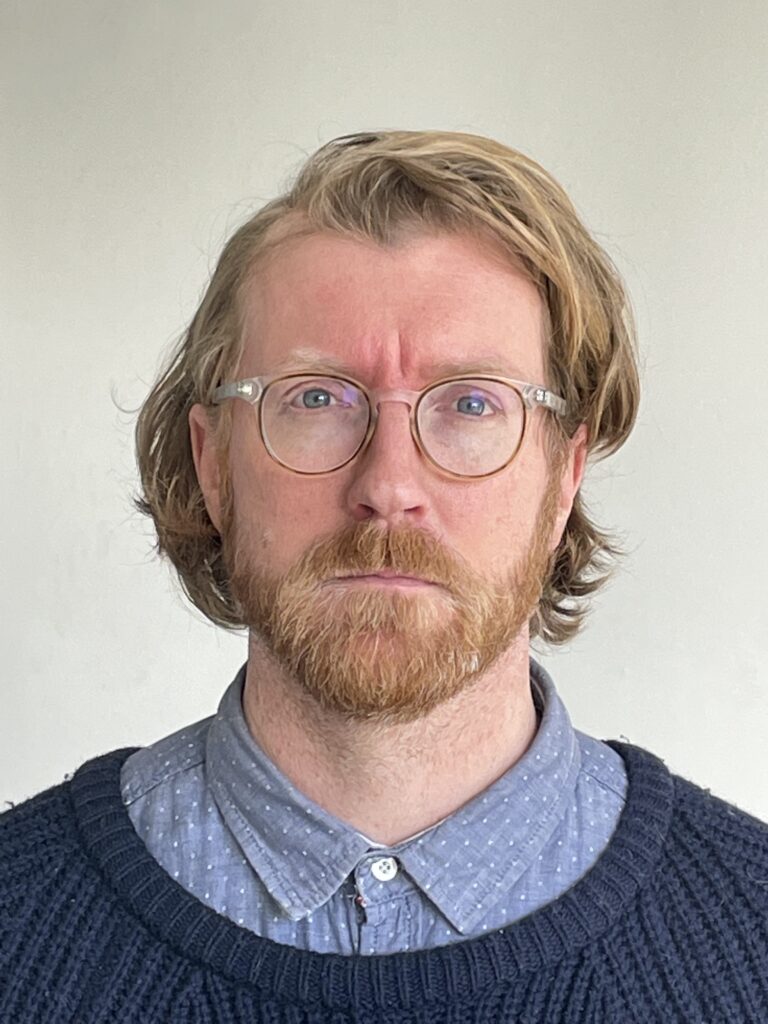
Join us for the launch of our final exhibitions of the season: THROUGH A MIRROR, DARKLY – a film commission from Turner-Prize nominated artist Naeem Mohaiemen and the 30th instalment of our Vitrines featuring a collection of photography from Baltimore-based photographer John Dean.
THROUGH A MIRROR, DARKLY is a new three-channel film by Turner Prize nominated artist Naeem Mohaiemen. It explores memorialisation, protest, and political violence through the lens of events in May 1970, when American students protesting domestic racism and overseas wars were met by state violence.
As part of the 30th instalment of our Bonington Vitrines series, we’re delighted to present A Semester in Nottingham, 1976, an exhibition of photographs by Baltimore-based John Dean. Captured during his time as a visiting student to NTU in 1976, these photographs offer a powerful glimpse into Nottingham life during a transformative era.
Enjoy a free welcome drink, delicious food (first come, first served!) and music.
All welcome but reserve your free ticket to avoid disappointment.
Join us for a free guided tour of Bonington Gallery’s latest exhibitions with BSL interpretation.
Book your free ticket and enjoy a guided tour of layt de kam, a solo exhibition by Ibiye Camp, led by the Gallery’s Director, Tom Godfrey.
Along with an introduction to the exhibition, Tom will talk through the accompanying Vitrines exhibition, Through Our Eyes, In Our Words.
This event will last up to an hour. Please meet inside Bonington Building in the foyer space outside the Gallery doors at 12.55 pm. Free and open to all, booking required.
Bonington Gallery presents A Semester in Nottingham, 1976, an exhibition of photographs by Baltimore-based John Dean. Captured during his time as a visiting student to Nottingham Trent University (NTU) in 1976, these photographs offer a powerful glimpse into Nottingham life during a transformative era.
This exhibition marks a poignant return to the institution — formerly Trent Polytechnic — where John studied as a visiting student nearly fifty years ago.
Armed with a camera and a quiet curiosity, John immersed himself in the rhythms of Nottingham life. Over the course of a single semester, he wandered the city’s streets and parks — Hyson Green, Market Square, the Arboretum — capturing striking black-and-white portraits of residents going about their daily lives. The resulting images are both documentary and deeply personal, offering a rare and intimate glimpse into the everyday lives of Nottingham’s people during a transformative era.
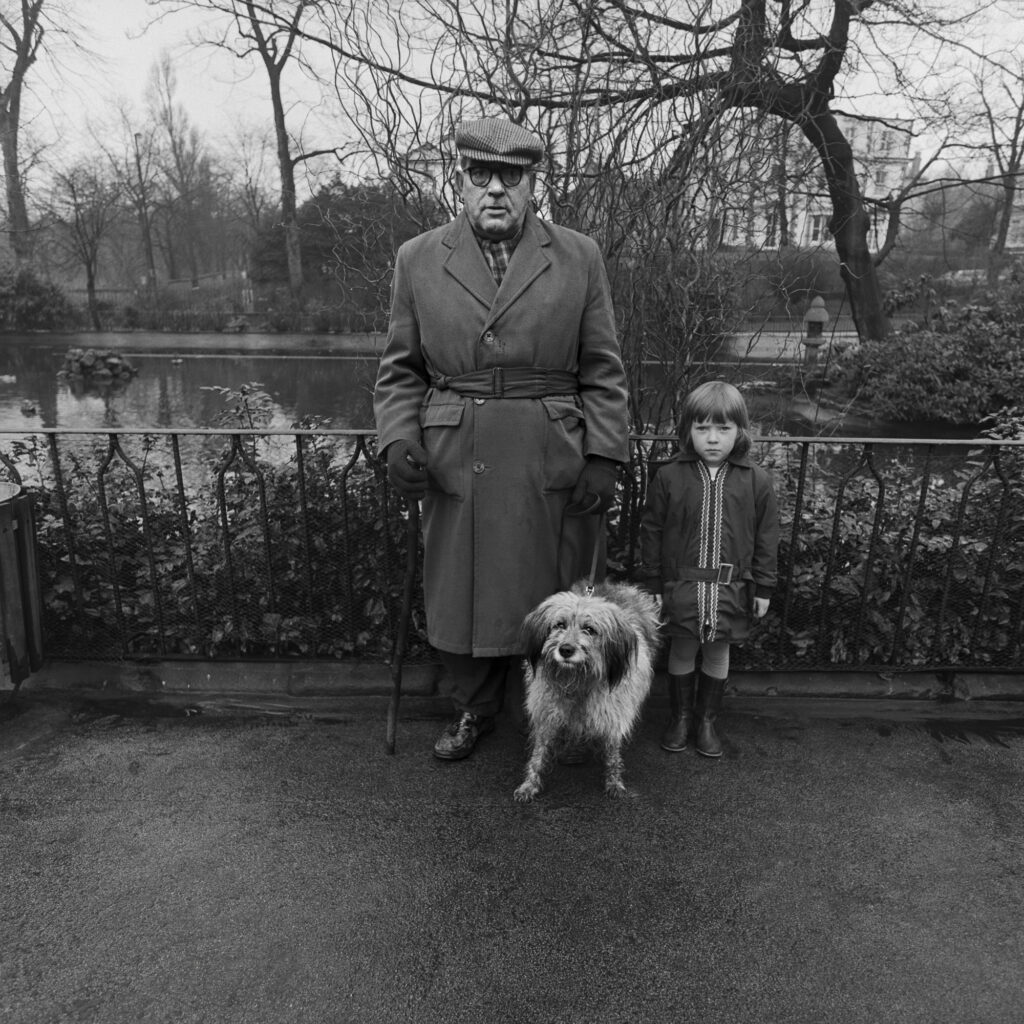
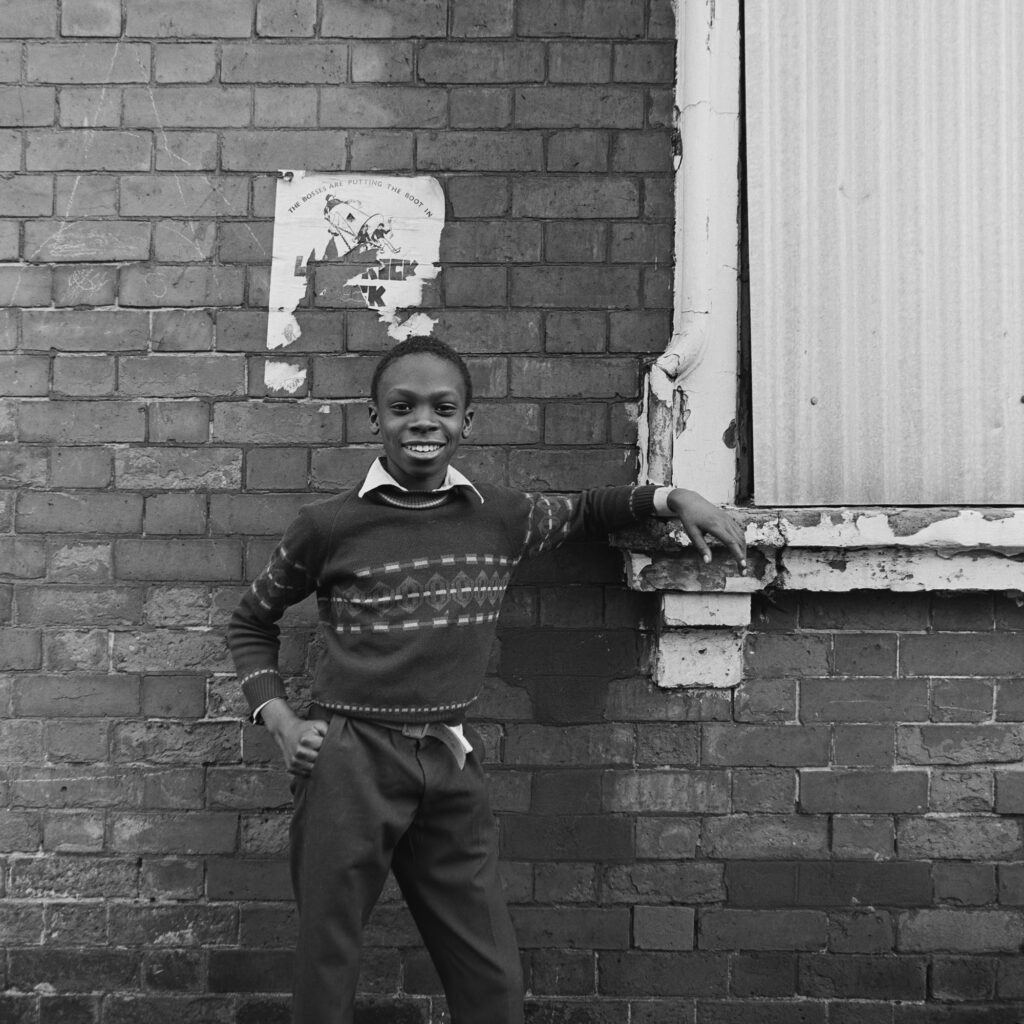
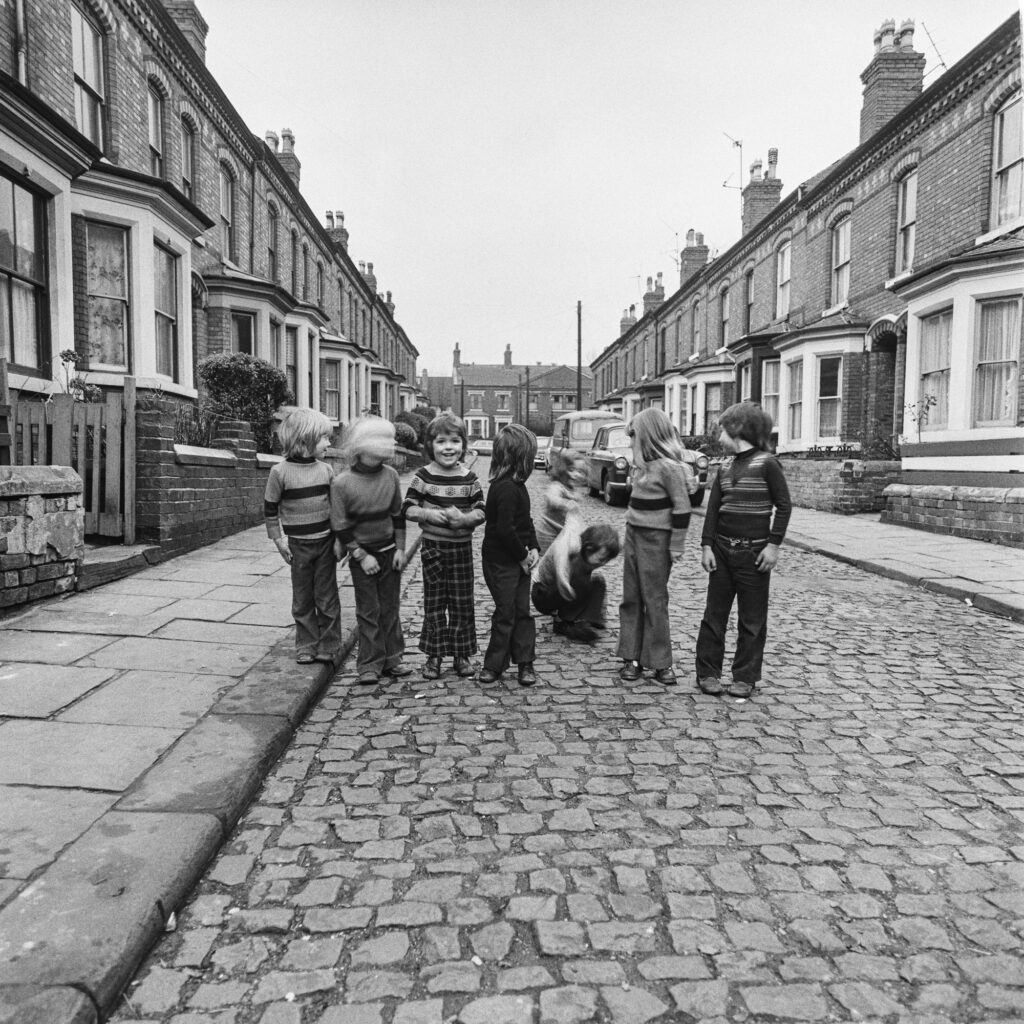
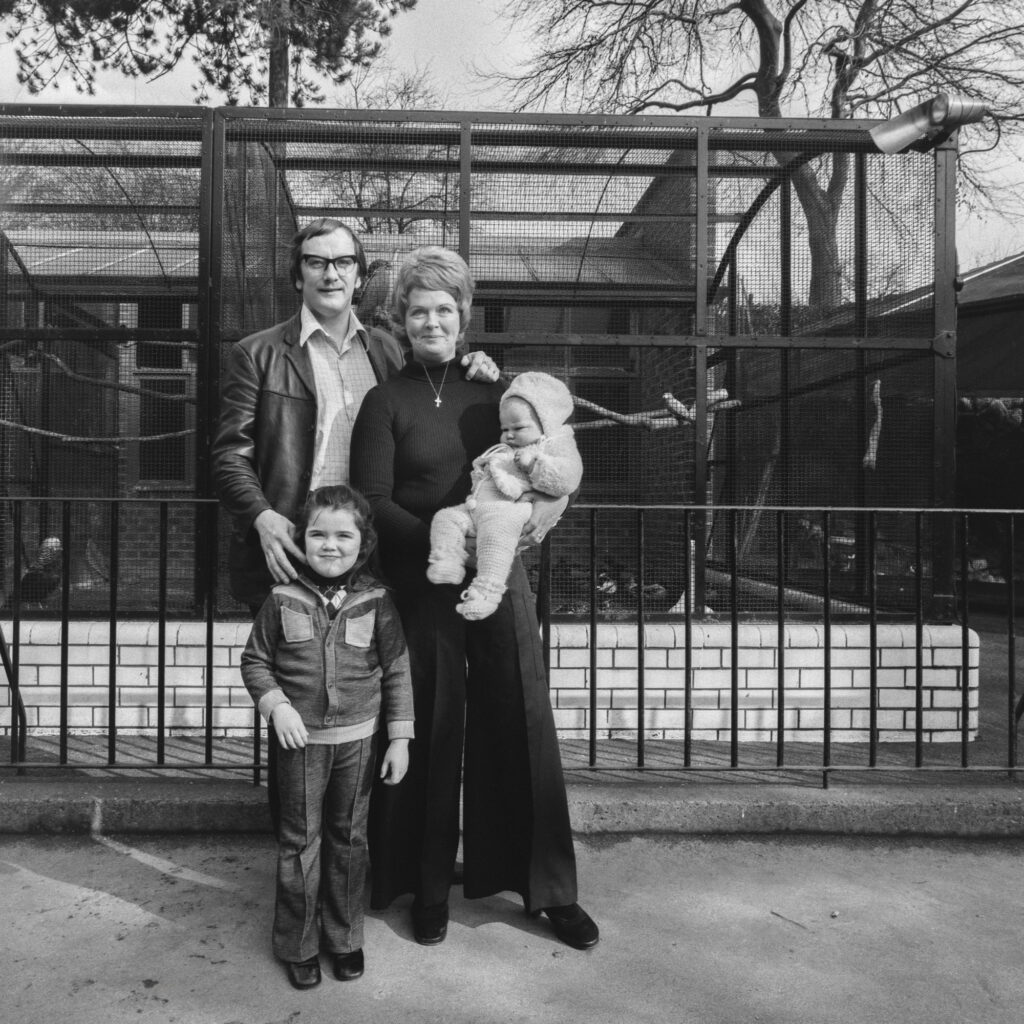
First developed in Trent’s own darkrooms (situated next door to the gallery), these photographs have remained largely unseen for decades. Now, they return to the place of their origin, standing as a testament to the power of observational storytelling, told through the eyes of a visitor to the city.
John has since built a distinguished career as a producer and videographer, creating historical and educational media for museums and non-profit organisations across the United States and beyond. Yet photography remains his first and most enduring creative language — a medium through which he continues to explore the intersections of memory, environment, and human experience.
John Dean is a Baltimore-based photographer, videographer who graduated with a BFA from the Maryland Institute College of Art. He regularly works with museums, non-profit organisations and editorial platforms on the creation of educational and historical media and content.
In addition to institutional work, John’s independent photographic practice has taken him across the world, exploring historic and cultural sites of significance, such as excavation sites in Greece and sacred spaces in Istanbul. As a long time mentor and arts advocate, John is consistently guided by a curiosity for human stories.
Join us for the launch of our latest exhibitions — new film and textile work by multi-disciplinary artist Ibiye Camp, exploring the complex interplay between infrastructure, care, and resilience along the coast of West Africa.
layt de kam critically examines the deployment of temporary power ships along West African coasts as a response to energy shortages. The work reflects both hope and uncertainty, emphasising the fragility of these energy solutions while honouring the resilience of coastal communities.
Accompanying layt de kam in our Vitrines is Through Our Eyes, In Our Words, an exhibition presenting stories of ageing, belonging, and inclusion among middle-aged and older-aged LGBT+ people in Britain.
Enjoy a free welcome drink, delicious food (first come, first served!) and music by multidisciplinary artist Fauzia.
All welcome but reserve your free ticket to avoid disappointment.
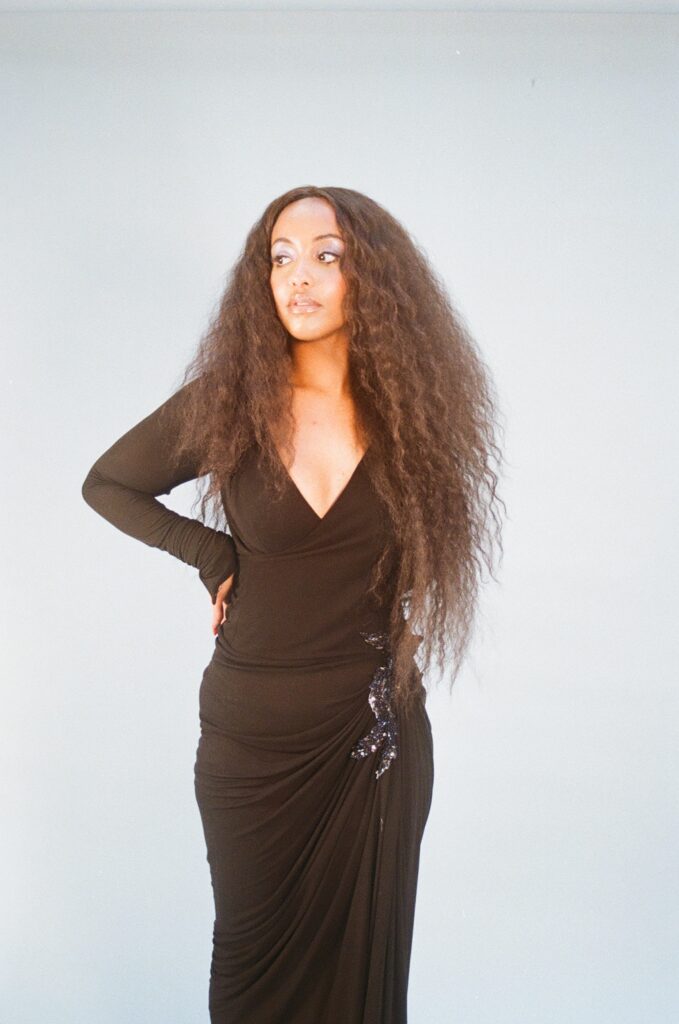
Bonington Gallery is delighted to present Through Our Eyes, In Our Words, an exhibition exploring stories of ageing, belonging, and inclusion among middle-aged and older-aged LGBT+ people in Britain.
What does it mean to belong? To grow older? To feel heard, seen, recognised?
Spanning LGBT+ History Month 2026, this exhibition from the IncludeAge project invites you to engage with the experiences of middle-aged and older-aged LGBT+ people in Britain today. Reflected through photographs, personal objects and testimony, LGBT+ people share what matters to them: the places they love and where they feel seen, and the everyday moments that shape who they are.
These artefacts don’t come from behind a lens held by someone else. They were taken by the people whose stories they tell. Some might identify as artists or creative practitioners, others not. Each photo and object is a choice – of what to show, how to show it, and what it means. Some speak of joy and celebration. Others quietly express frustration or longing—all of them reflect lives lived with strength, humour, creativity, and care.
The IncludeAge project (2022-26) explores experiences of inclusion and exclusion among diverse middle-aged and older aged people (40+), in physical places and online spaces..
The project specifically engages with LGBT+ individuals and people with learning disabilities. Its goal is to build on the insights shared by participants and use them to develop solutions that foster more inclusive communities.
The project is led by Professor Judith Sixsmith at the University of Dundee, in partnership with the University of Hertfordshire, Liverpool John Moores University, and the University of Edinburgh. Several organisations are also involved in the project, including Tonic Housing, Sleeping Giants, and Outside the Box, among others.
At Bonington during LGBT+ History Month 2026, Through Our Eyes / In Our Words showcases the richness of LGBT+ voices, histories, and imagery emerging through the project. Exhibitions elsewhere in the country will showcase material relating to the participants with learning disabilities.
For more information, please contact Dr Richard Vytniorgu (r.vytniorgu@herts.ac.uk).
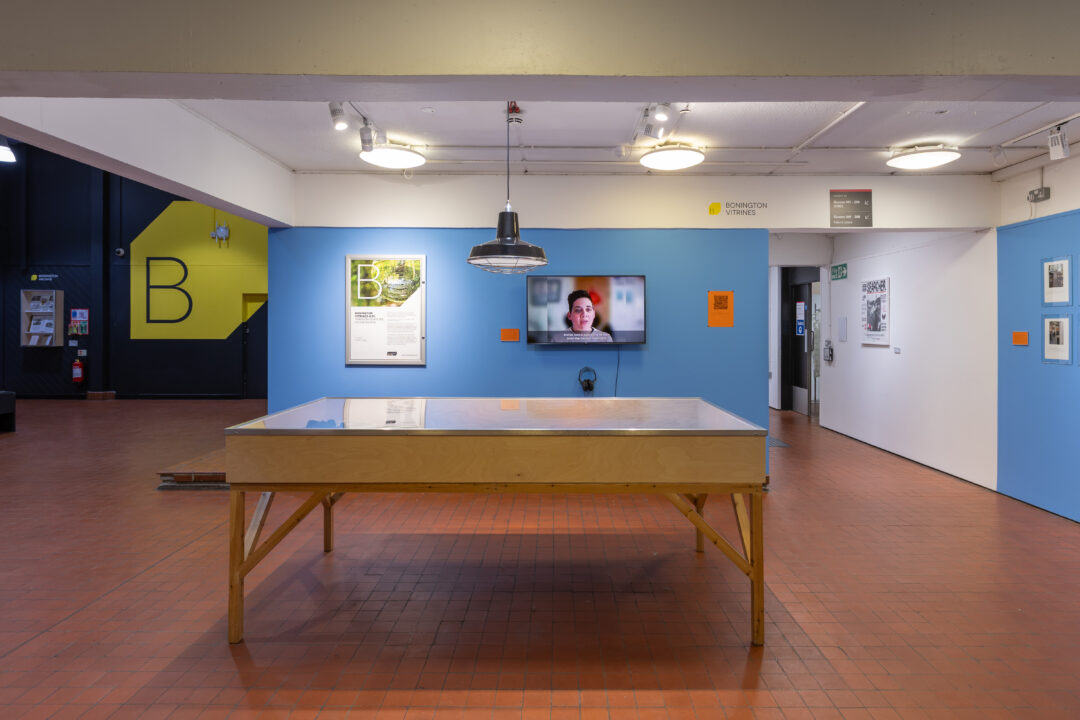
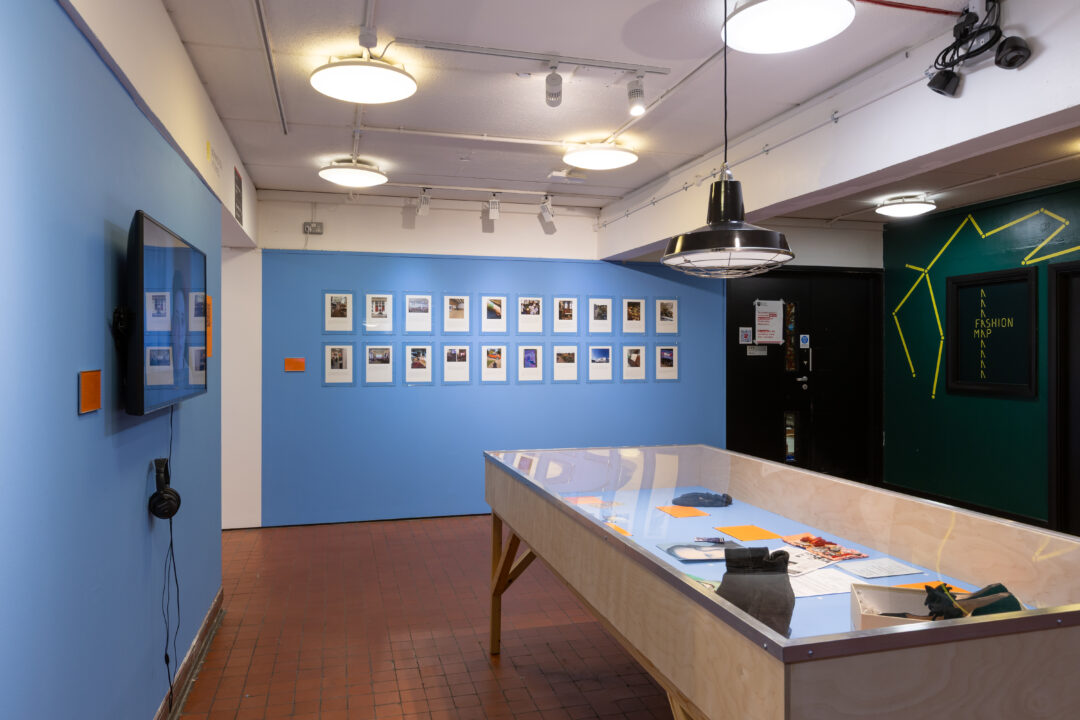
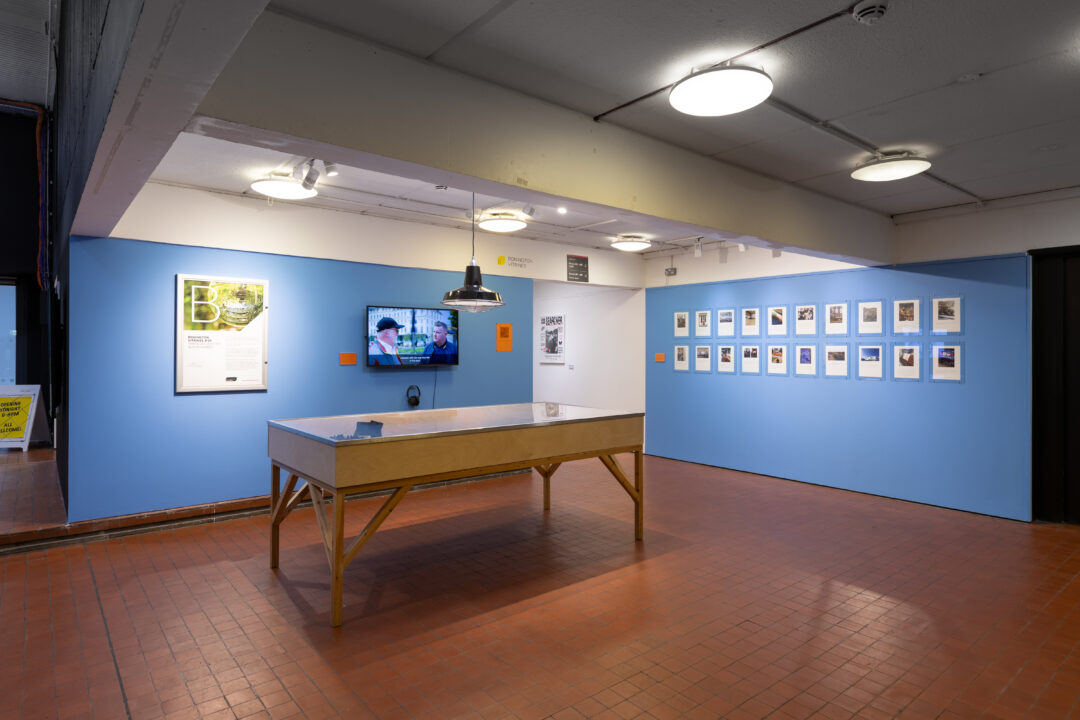
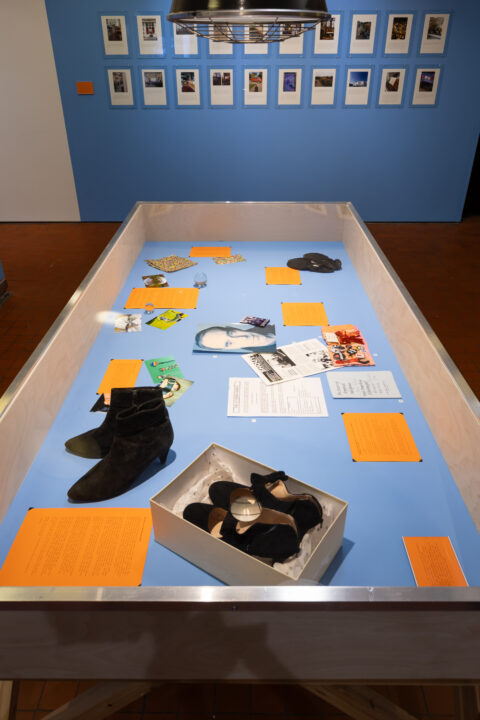
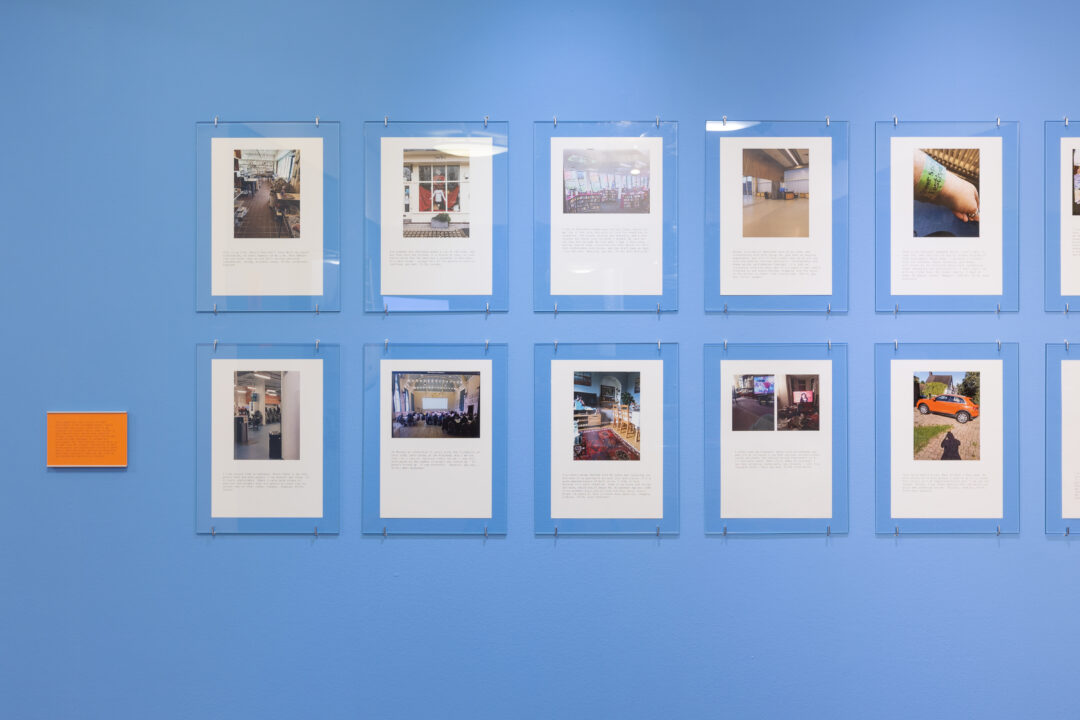
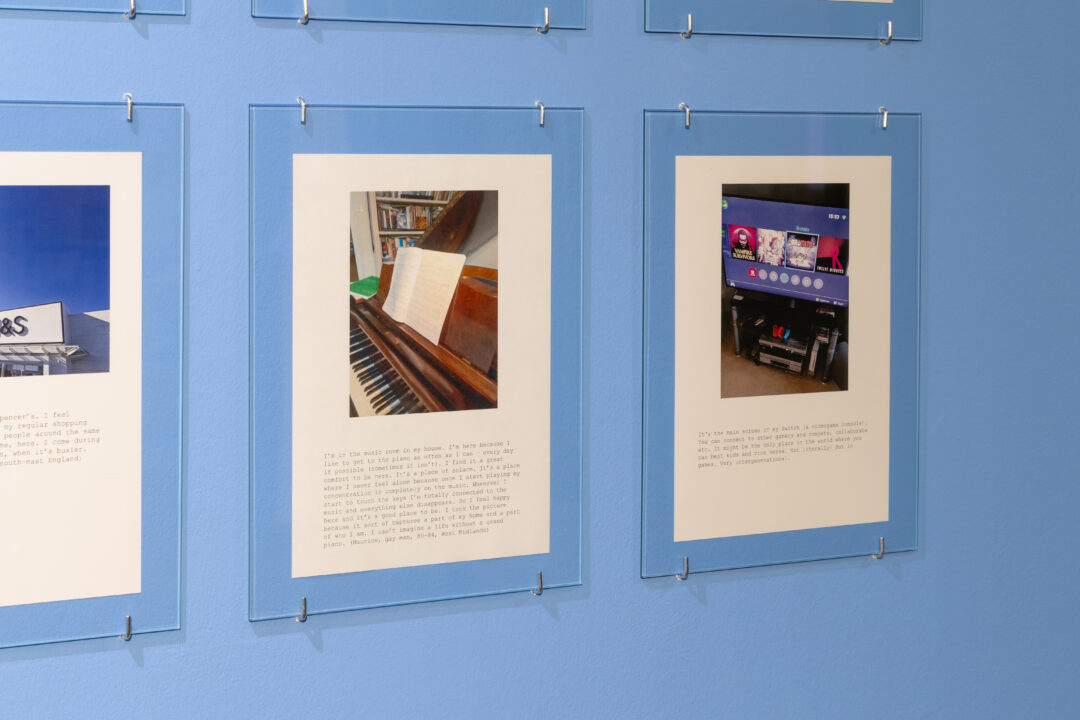
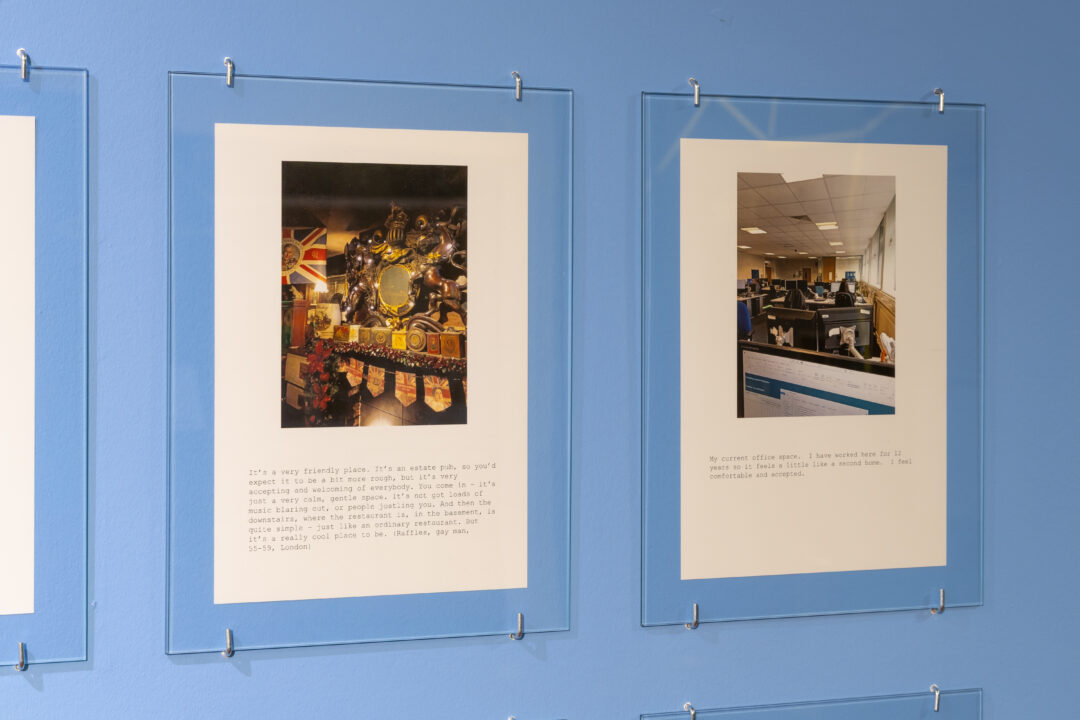
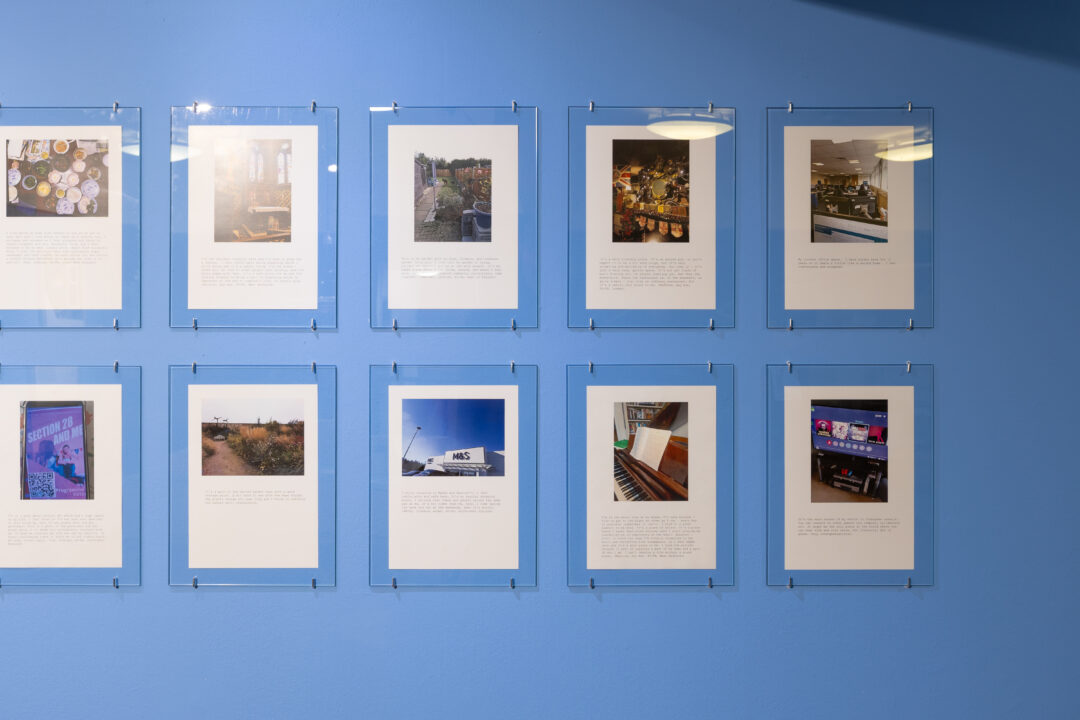
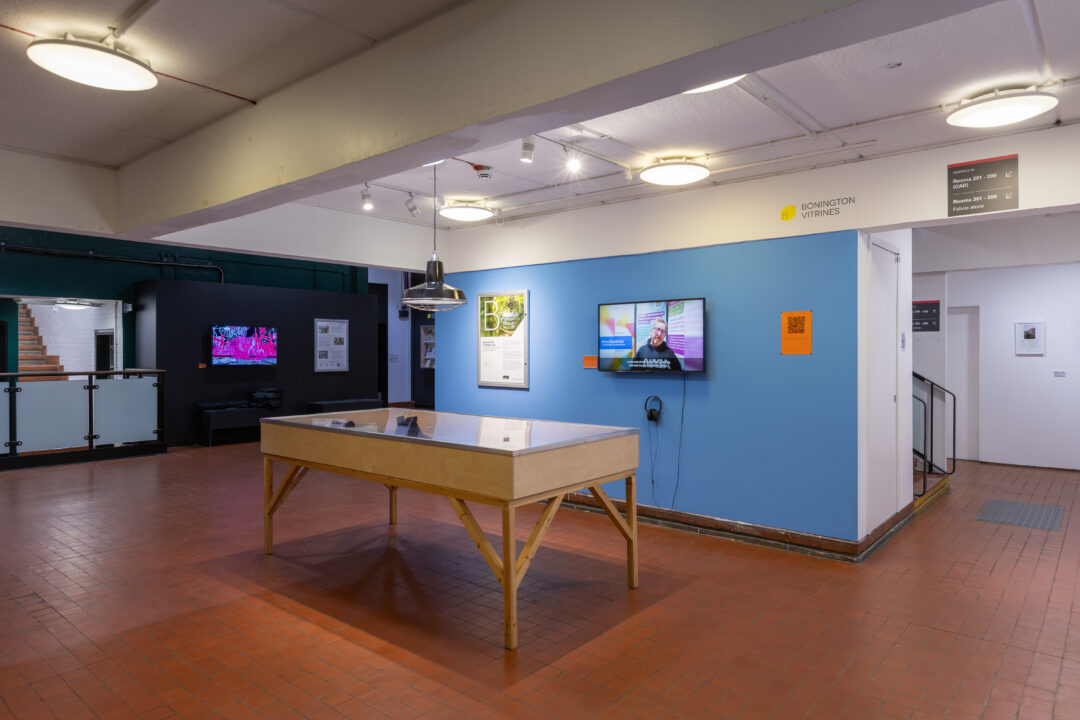
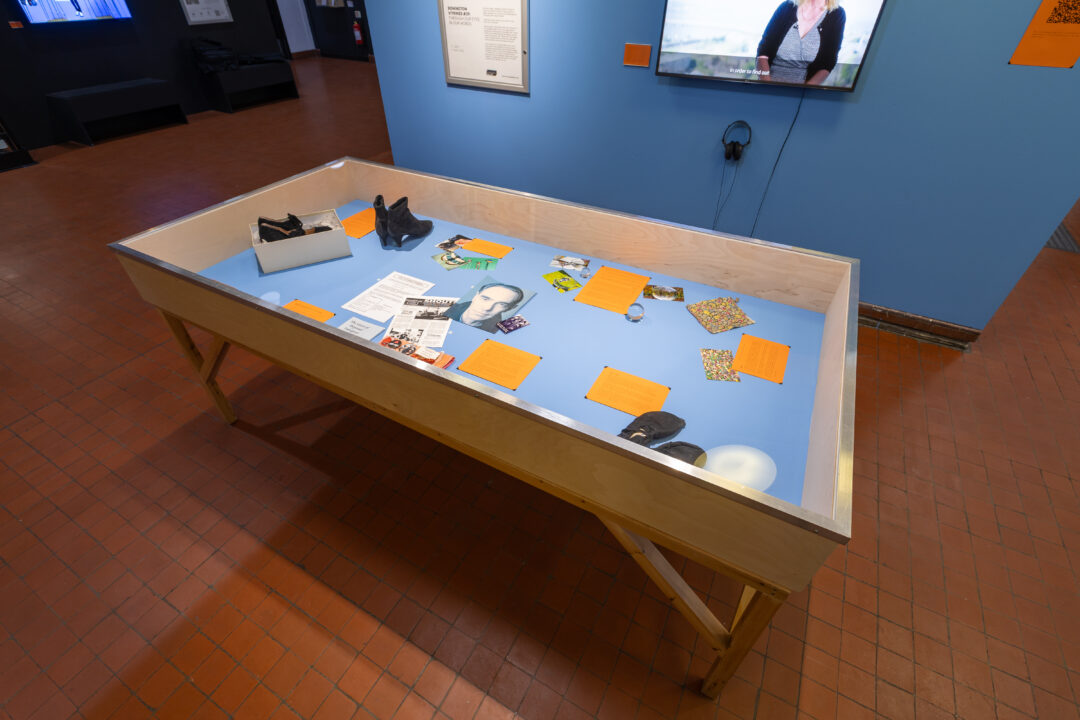
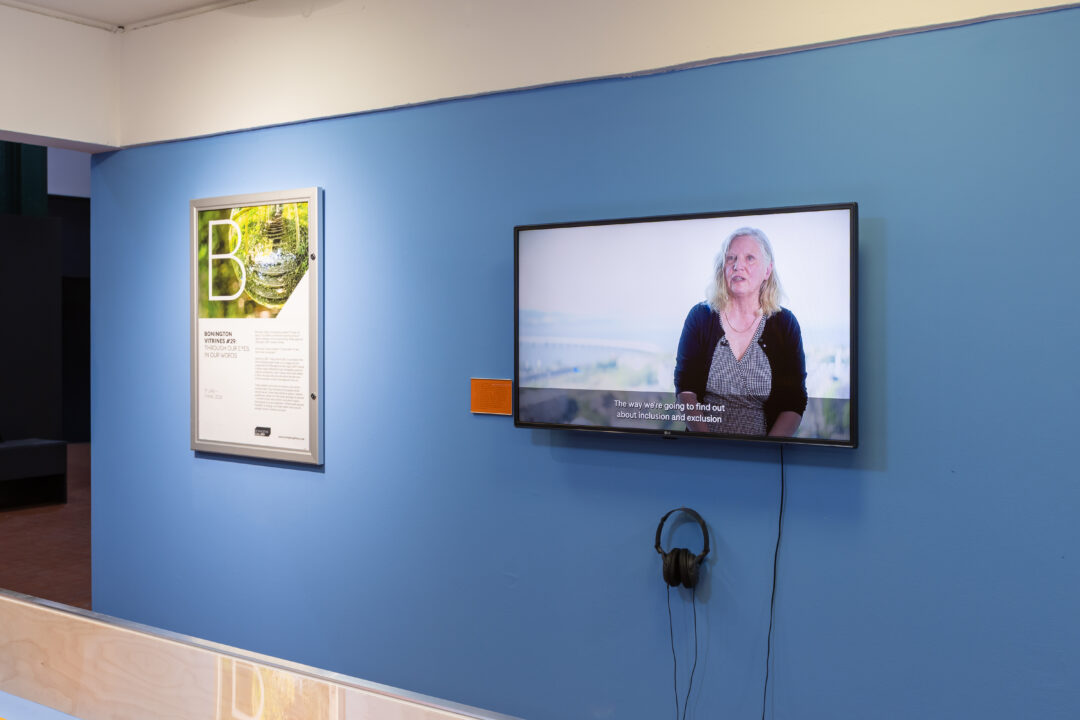
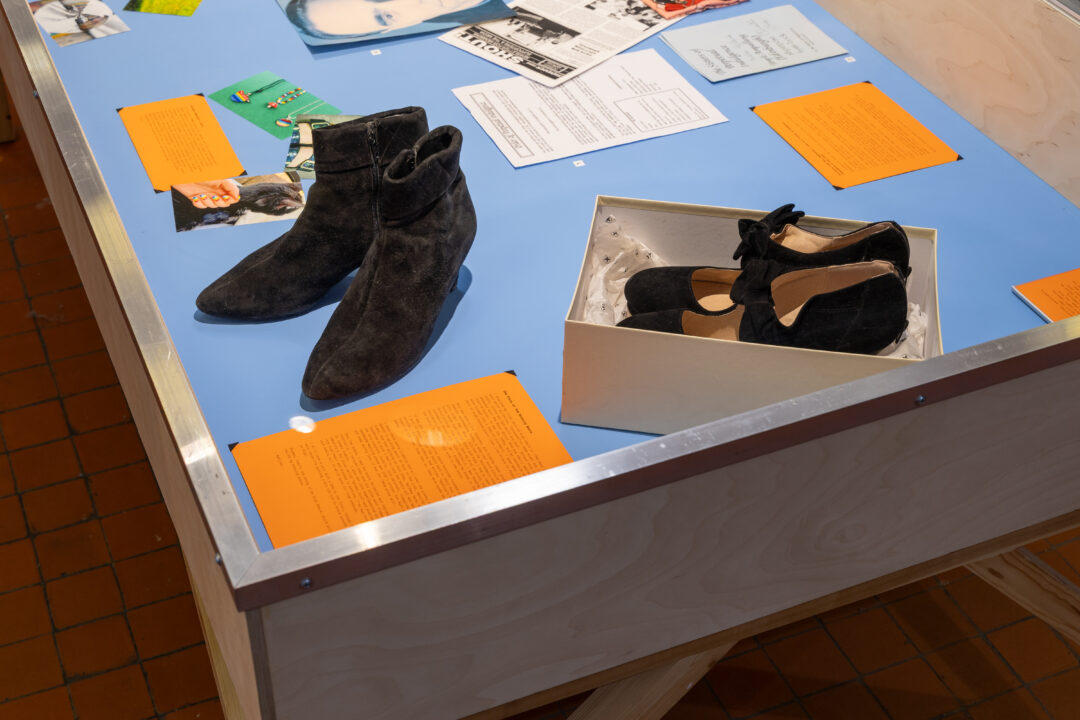
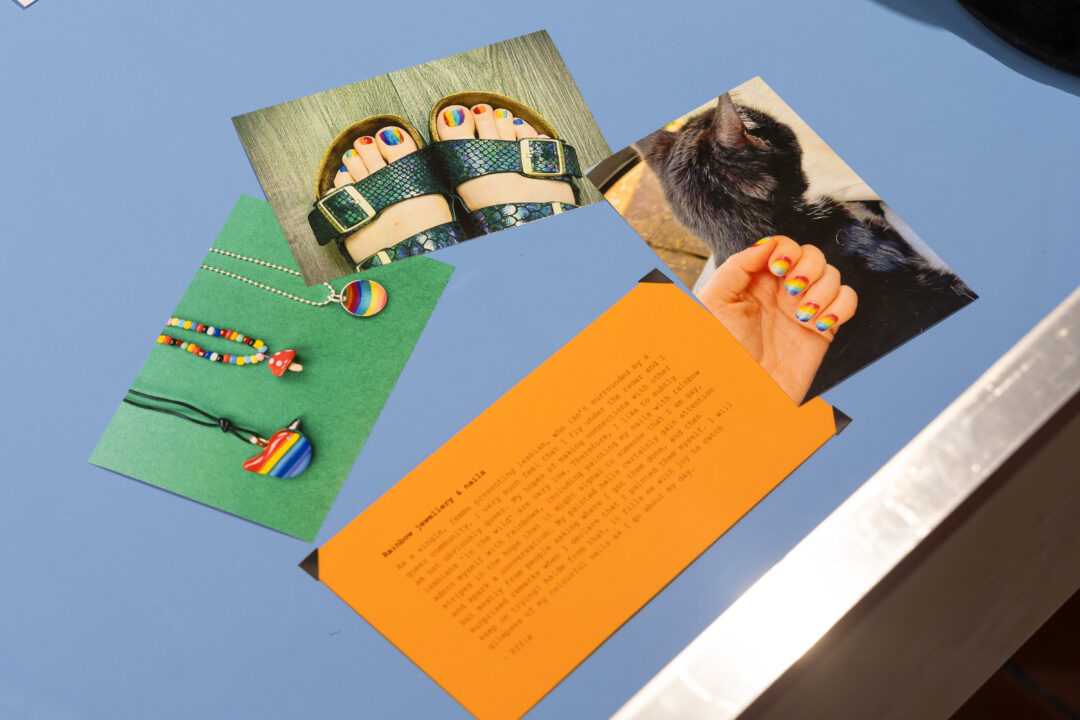
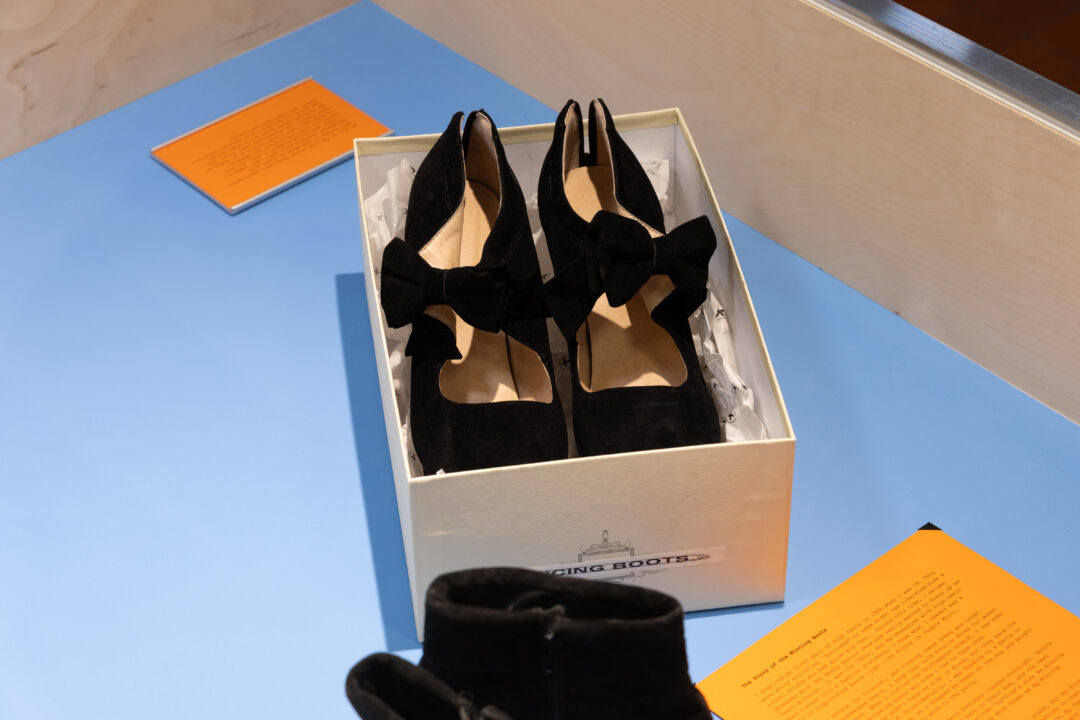
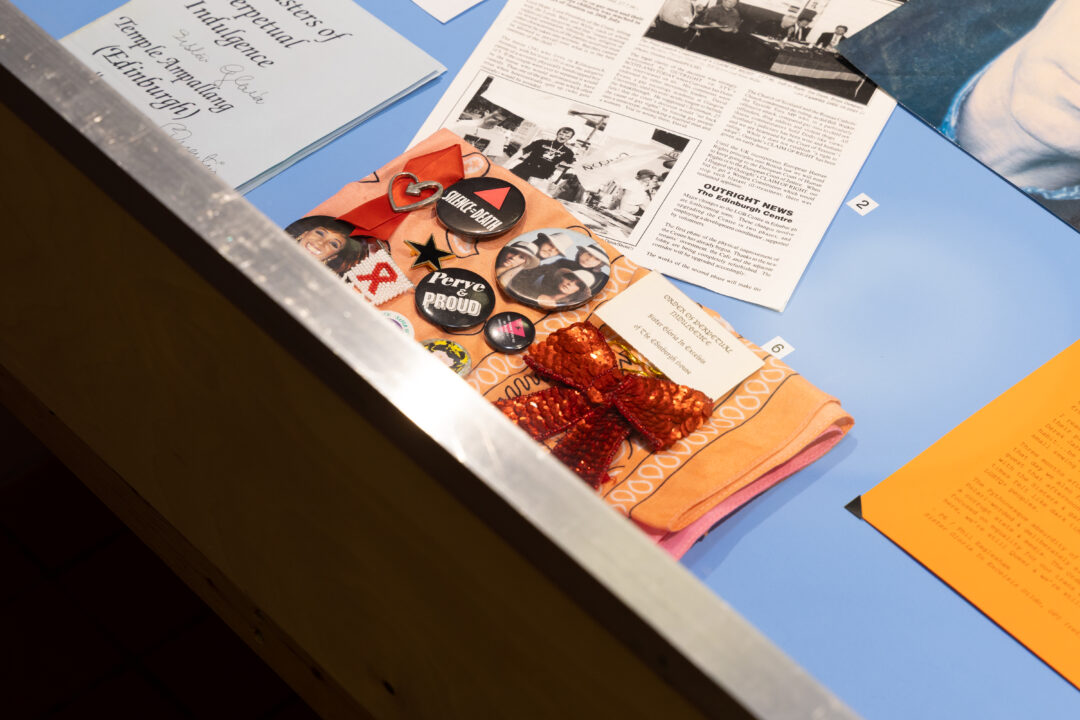
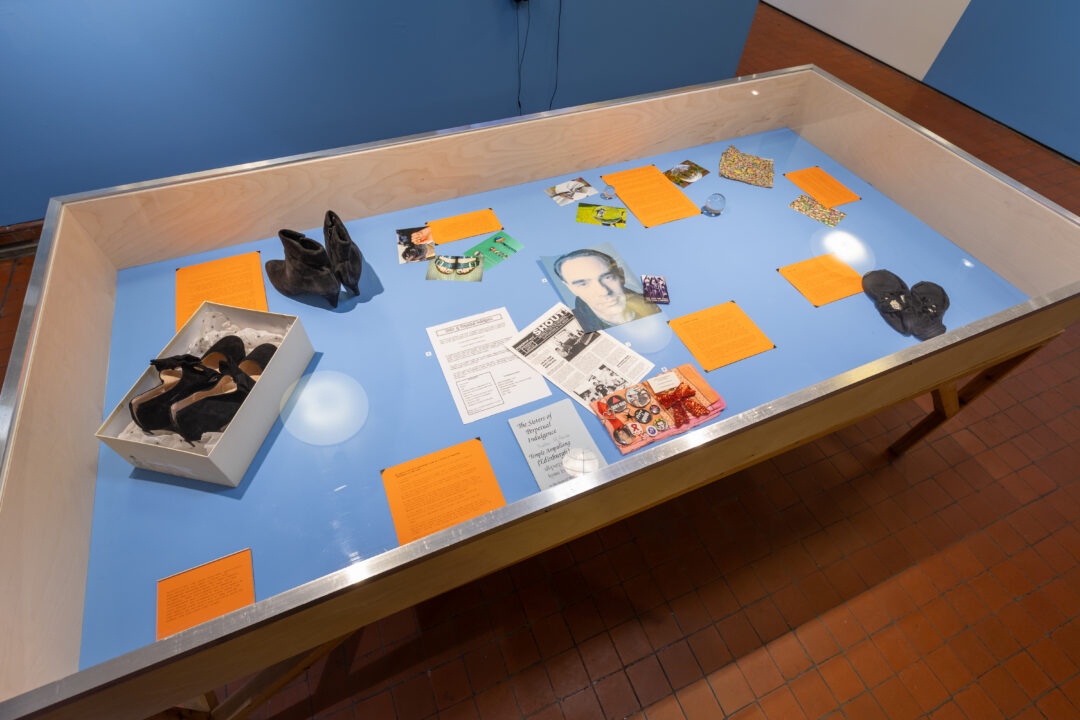
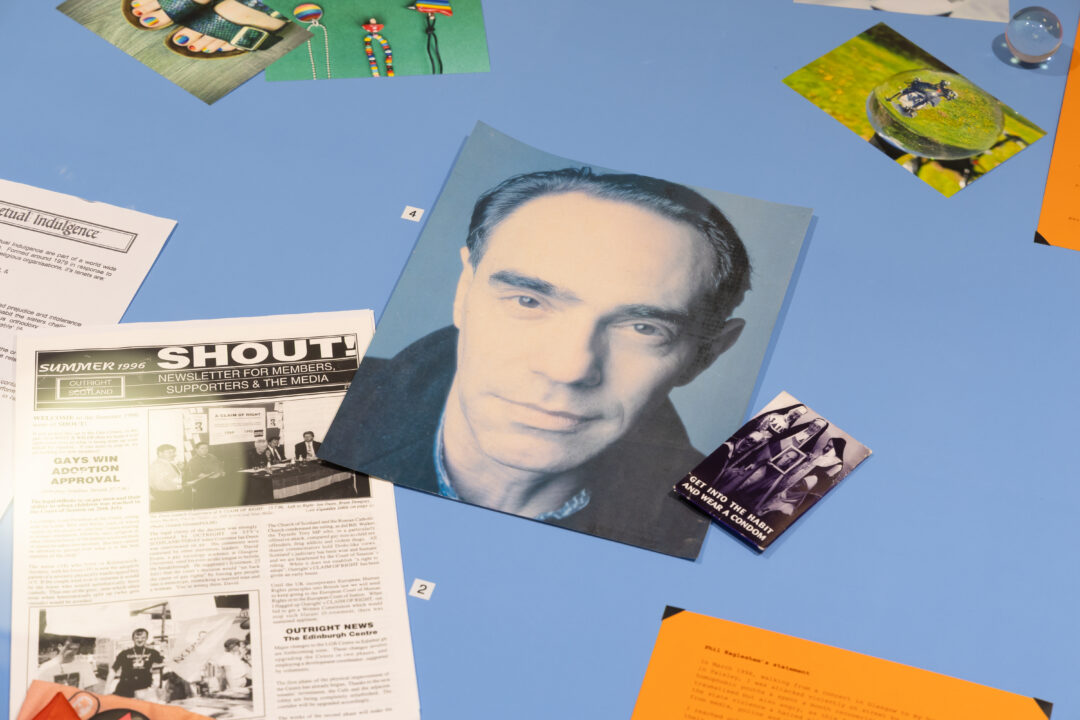
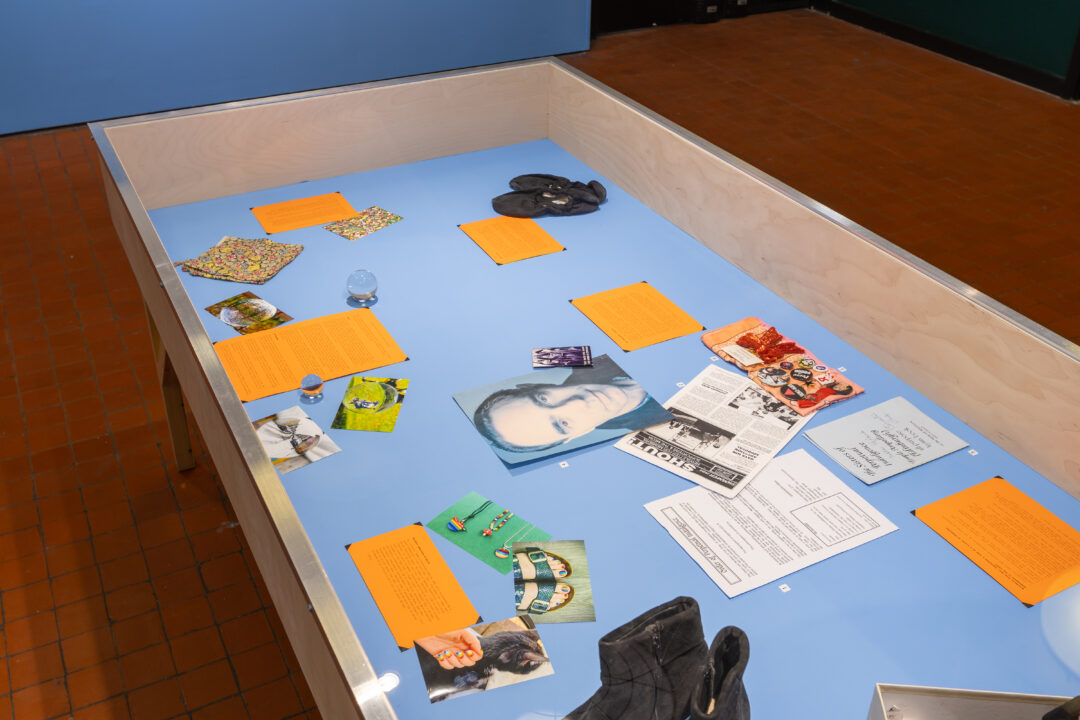
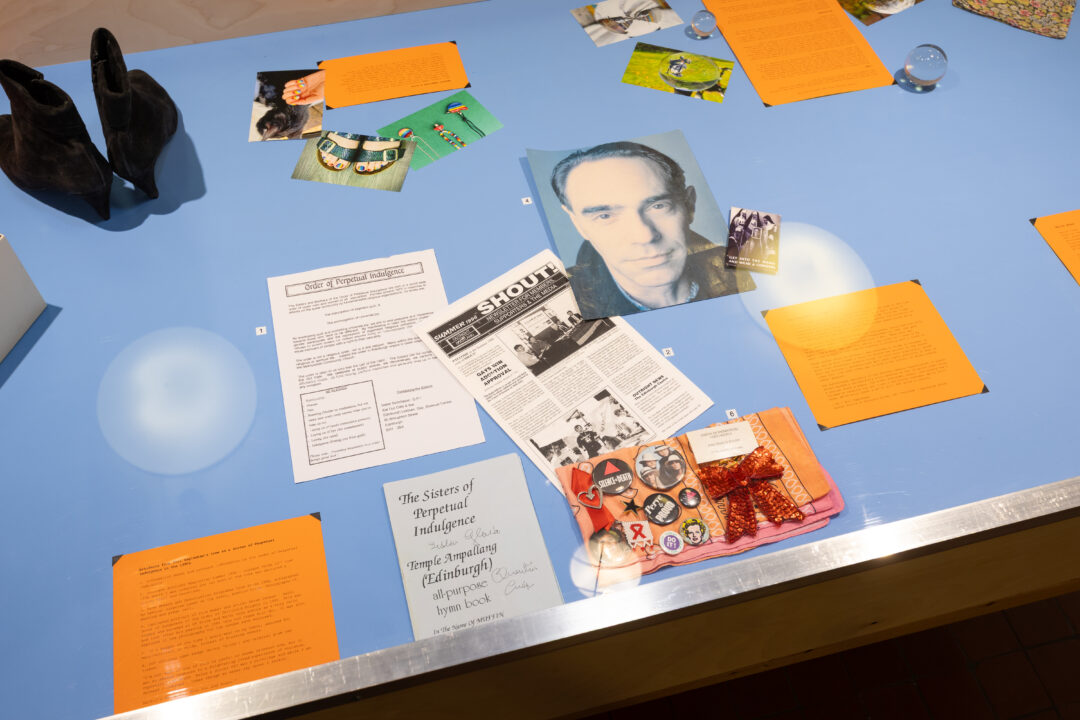
Lead image: Rosie Gardener